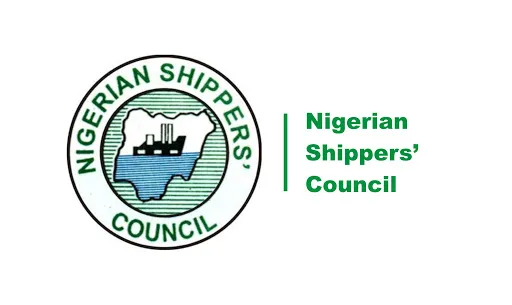The Nigerian Shippers’ Council (NSC), has announced the implementation of the International Cargo Tracking Note (ICTN), by the second quarter of 2025.
LEADERSHIP Sunday reports that the ICTN is an automated scheme, which can determine the type and volume of cargo that are imported into the country through seaports within a specific period. The CTN will also boost Nigeria’s security and enhance the federal government’s revenue from the seaports.
However, speaking at the Council’s five year strategic management retreat titled, ‘NSC in 2000: Harnessing the potential of the Marine and Blue Economy though global and sustainable partnership,’ held in Ibadan, Oyo State, the executive secretary of the council, Dr Pius Akutah, said the implementation of the ICTN will set the stage for enhanced revenue generation and operational oversight for the council.
Dr Akutah also disclosed that the Council’s 2025 budget is hinged on the one per cent freight stabilisation fee.
“Notably, under the guidance of the Federal Ministry of Marine and Blue Economy, the International Cargo Tracking Note (ICTN) is scheduled for implementation in the second quarter of this year, setting the stage for enhanced revenue generation and operational oversight.
“Looking ahead, the Council’s 2025 budget is strategically anchored on the one freight stabilisation fee, with plans to commence its collection upon Presidential assent to the NPERA Bill.”
According to the Shippers’ Council boss, the retreat marks a critical step in shaping a comprehensive 5-year strategic plan for 2025–2029.
He further argued that the strategic plan was designed to advance the maritime sector through enhanced efficiency, adaptability, and innovation.
“The Nigerian Shippers’ Council has a proud legacy of resilience and impact—protecting shippers’ interests, fostering fair trade practices, and driving competitiveness within our ports. Over the past year, the Council has recorded remarkable achievements, including the signing the Minimum Standards of Conditions of Service for Workers in the Shipping Industry; launching the Operational Manual for Inland Dry Ports & Hosting the 17th International Maritime Seminar for Judges; rolling out the Online Registration Portal for regulated port service providers and users.
Others are, “Developing the E-Regulatory Process Portal (ERPP) and the Confirmation of Reasonableness of Demurrage, Freight Rate, and Charter Party Fees (CRD) Portal; recovering billions of naira through robust complaints handling mechanisms and introducing a Leadership Development Program to strengthen institutional capacity through succession planning.
“These accomplishments underscore our unwavering commitment to delivering value to stakeholders and ensuring a seamless transition to NPERA.”
The Shippers’ Council boss, however, revealed that in 2025, the council will focus on promoting transparency and fairness through predictable regulatory policies.
He also disclosed that the council will enhance operational efficiency to prepare for a seamless transition to NPERA.
“Our focus during this retreat will revolve around four strategic priorities that include the strengthening stakeholder engagement to foster inclusivity and collaboration; Promoting transparency and fairness through predictable regulatory policies; Enhancing operational efficiency to prepare for a seamless transition to NPERA and driving sustainability by aligning economic growth with environmental responsibility.
“This retreat is not merely a planning session but a collaborative platform for crafting actionable solutions and building a solid framework for regulatory excellence. By uniting our expertise, creativity, and dedication, we can lay the foundation for a more competitive, inclusive, and sustainable maritime sector.”
However, speaking at the retreat, the Minister of Marine and Blue Economy, Adegboyega Oyetola, applauded the council for the reform they have initiated in the sector.
Oyetola who was represented by the Director, Planning Research and Statistics, Hajia Kalthum Ibrahim, stated that operating as Nigeria’s Port Economic Regulator, the Nigeria Shippers Council has been steadfast in reforming its regulatory frameworks to streamline cargo movement across Africa.
“Let us reaffirm our commitment to harness the vast potential of our marine resources sustainably, aligning with international standards and addressing the unique challenges facing our country. Operating as Nigeria’s Port Economic Regulator, the Nigeria Shippers Council has been steadfast in reforming its regulatory frameworks to streamline cargo movement across Africa, facilitating intra-African trade within the African Continental Free Trade Area (AfCFTA).
“Noteworthy initiatives such as the anti- corruption campaign at Lagos Port, research on transportation and logistics issues in international trade, improved stakeholder relationships and efforts towards implementing the International Cargo Tracking Note (ICTN) at Nigerian ports reflect the Council’s commitment to progress.
“Undoubtedly, challenges confront the NSC, yet through endeavors aimed at port reforms, enhancing infrastructure, optimising operations, improving connectivity among transport modes, adopting the Port Community System (PCS). bolstering maritime security and investing in capacity building, the Council is making strides towards overcoming these obstacles.
“The dedication and diligence exhibited by the NSC are essential in realising its strategic objectives and some others set for the maritime sector. This retreat not only provides an opportunity to celebrate achievements but also calls for a critical examination of the road ahead, paving the way for a transformative impact on our nation’s blue economy boosting GDP contributions, fostering job creation and instilling sustainable environmental practices,” he stated.





